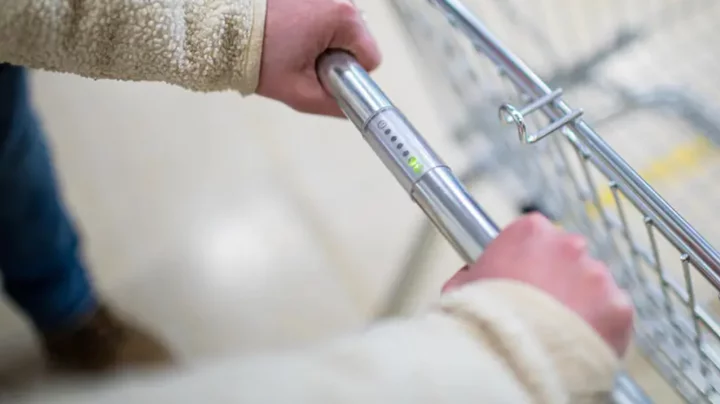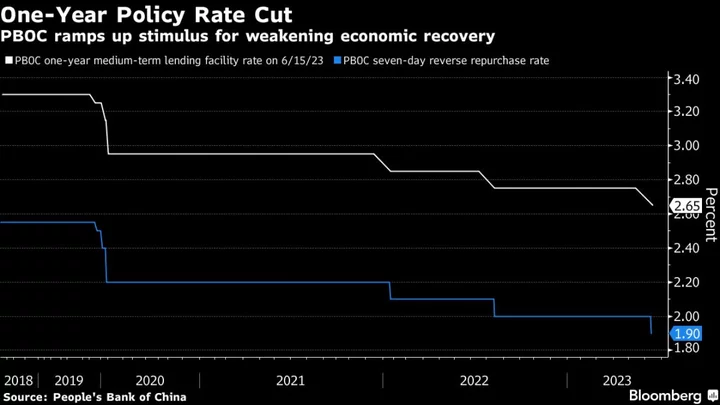
Scientists have come up with a new meaning of life – and it's pretty mind-blowing
The meaning of life is the ultimate mystery – why do we exist? And is there a point to… well… anything? These are questions to which we may never find answers, but at least we can define what “life” means in scientific terms. And yet, our understanding of what life is is changing all the time, thanks to space exploration. As scientists continue to hunt for life beyond our own world, biologists are having to rethink the meaning of the word “life” itself. Sign up for our free Indy100 weekly newsletter Generally, biologists explain “life” as connoting a self-sustaining chemical system which is capable of performing functions such as eating, metabolising, excreting, breathing, moving, growing, reproducing, and responding to external stimuli. This definition works pretty well here on Earth (although there are some important exceptions, such as viruses), but experts have pointed out that if life exists elsewhere in the universe, it may not display the same properties that we’re used to. Indeed, it might be unrecognisable as life as we know it (forget those little green men). In which case, how will we spot it if it ever crosses our path? Astrobiologist Sara Imari Walker and chemist Lee Cronin think they’ve come up with a solution. The pair are now arguing that highly complex molecules found in all living creatures can’t exist thanks purely to chance. Therefore, they say, the universe must have a way of creating and reproducing complex information and retaining a “memory” of all of this.. In an interview with New Scientist, Walker, of Arizona State University, explained their radical idea on how objects come into existence. The concept, known as Assembly Theory, explains why certain complex objects have become more abundant than others by considering their histories. If the theory proves correct, it will redefine what we mean by “living” things and show that we’ve been going about the search for extraterrestrial life all wrong. In the process, we could even end up creating alien life in a laboratory, she stressed. In her discussion with New Scientist, Walker pointed out: "An electron can be made anywhere in the universe and has no history. You are also a fundamental object, but with a lot of historical dependency. You might want to cite your age counting back to when you were born, but parts of you are billions of years older. "From this perspective, we should think of ourselves as lineages of propagating information that temporarily finds itself aggregated in an individual." Assembly theory predicts that molecules produced by biological processes must be more complex than those produced by non-biological processes, as Science Alert notes. To test this, Walker and her team analysed a range of organic and inorganic compounds from around the world and outer space, including E. coli bacteria, urine, meteorites and even home-brewed beer. They then smashed up the compounds into smaller pieces and used mass spectrometry to pinpoint their molecular building blocks. They calculated that the smallest number of steps required to reassemble each compound from these building blocks was 15. And whilst some compounds from living systems needed fewer than 15 assembly steps, no inorganic compounds made it above this threshold. "Our system … allows us to search the universe agnostically for evidence of what life does rather than attempting to define what life is," Walker, Cronin, and others wrote in a 2021 Nature Communications article. The handy thing about this building block system – which they’ve dubbed the “'molecular assembly index” – is that it doesn’t rely on carbon-based organic materials to be identified. In other words, an alien could be made of entirely different stuff entirely and we’d still be able to spot it as life using the index. It also works regardless of what stage of “life” an extraterrestrial being is in – whether it is still in its infancy or has moved into a technological stage beyond our understanding. That’s because all of these states produce complex molecules which couldn’t exist in the absence of a living system. If all of this is hurting your head, let’s just get back to the basics: if there is a secret to life, it might all be down to what we do, not what we are. Have your say in our news democracy. Click the upvote icon at the top of the page to help raise this article through the indy100 rankings.
2023-06-25 19:26

Heartbeat sensors on shopping trolleys 'could save lives', new study suggests
New findings have suggested that adding sensors to supermarket trolleys could save people’s lives. Scientists investigated whether installing electrocardiogram (ECG) sensors – designed to check the heart’s rhythm – on the handles of supermarket, trolleys could identify shoppers with atrial fibrillation, which causes an irregular and often abnormally fast heart rate. The sensors would detect heart conditions that put them at increased risk of stroke. The researchers said that over the course of two months, they identified 39 people who were unaware that they had the condition. Ian Jones, professor of cardiovascular nursing at Liverpool John Moores University, who led the study, said: “That’s 39 people at greater risk of stroke who received a cardiologist appointment.” He added: “This study shows the potential of taking health checks to the masses without disrupting daily routines.” It is estimated that around 1.5 million people in the UK have atrial fibrillation, contributing to one in five strokes. The condition is treatable, but at least another 270,000 people in the UK remain undiagnosed and unaware, according to the British Heart Foundation. Sign up for our free Indy100 weekly newsletter There are wearable devices that can also spot irregular heartbeat but this would also require people to take responsibility and wear the device. Professor Jones said: “Nearly two-thirds of the shoppers we approached were happy to use a trolley, and the vast majority of those who declined were in a rush rather than wary of being monitored. “This shows that the concept is acceptable to most people and worth testing in a larger study.” He added: “Checking for atrial fibrillation while people do their regular shopping holds promise for preventing strokes and saving lives. “A crucial aspect is providing immediate access to a health professional who can explain the findings and refer patients on for confirmatory tests and medication if needed.” The findings were presented at ACNAP 2023 conference organised by the European Society of Cardiology (ESC). Have your say in our news democracy. Click the upvote icon at the top of the page to help raise this article through the indy100 rankings.
2023-06-25 16:49

On Deck for Fed, ECB — Another Dose of Inflation Data
Fresh inflation readouts this week will probably feed into expectations of further policy tightening by Federal Reserve and
2023-06-25 14:56

MLB Rumors: Reds win streak snapped, Red Sox injury update, Derek Jeter gets trolled big-time
MLB Rumors: Red Sox starter James Paxton's injury doesn't sound any alarmsThe Boston Red Sox's starting pitching woes are not getting any better. Pitcher James Paxton was yanked from Saturday's game against the White Sox after four innings due to right knee soreness.Paxton ...
2023-06-25 10:48

Eric Bieniemy reveals key difference between Chiefs and Commanders
Four months after being hired by the Commanders, ex-Chiefs OC Eric Bieniemy names one key difference between the two teams.Off the top of our heads, we can think of a few differences between the Kansas City Chiefs and Washington Commanders. Quarterback, coaching, divisional record, playoff recor...
2023-06-25 08:23

2025 FIFA Club World Cup: Expanded format, host & teams involved
Everything you need to know about the expanded 2025 Club World Cup, including when and where it is held, how teams can qualify and which clubs will be involved
2023-06-25 05:22

MLB Rumors: Joey Votto adds pressure to Reds, Yankees asset fails, Astros Abreu replacement
MLB Rumors: Joey Votto adds pressure for the RedsBefore the season, Joey Votto was floated as a potential trade chip for the Reds. Would he be sent to the Toronto Blue Jays, to finally play for his home country in Canada? The Jays, after all, had a chance to contend in the AL East.Oh, how time...
2023-06-25 04:59

Braves: 3 terrible takes Atlanta has already proven this season
There are bad takes, and there are the ones certain people had about the Atlanta Braves during the offseason...Today is a day where we will continue to praise the remarkable partnership between general manager and skipper in Alex Anthopoulos and Brian Snitker of the Atlanta Braves.This tande...
2023-06-25 04:26

Irish government orders review of RTÉ over Ryan Tubridy payments
The review will examine the culture and governance at Ireland's national broadcaster.
2023-06-25 01:50

The biggest multi-club projects in football
The largest and most influential multi-club projects in football, including the City Football Group and Red Bull's stable of clubs
2023-06-25 01:26

US and Western officials caught off guard by Prigozhin's escalation in Russia
US and Western officials are being careful not to weigh in on the events unfolding in Russia because of how Russian President Vladimir Putin could weaponize any perceived involvement by the west in the escalating crisis, sources familiar with the administration's thinking told CNN.
2023-06-24 23:57

Francisco Lindor sounds upset after NY Mets traded Eduardo Escobar
The New York Mets didn't have a spot for Eduardo Escobar, so they shipped him to the Los Angeles Angels for two prospects, paying his salary in the process. Francisco Lindor doesn't sound too happy about that.The trade was initially reported by FanSided's Robert Murray on Friday n...
2023-06-24 23:52
